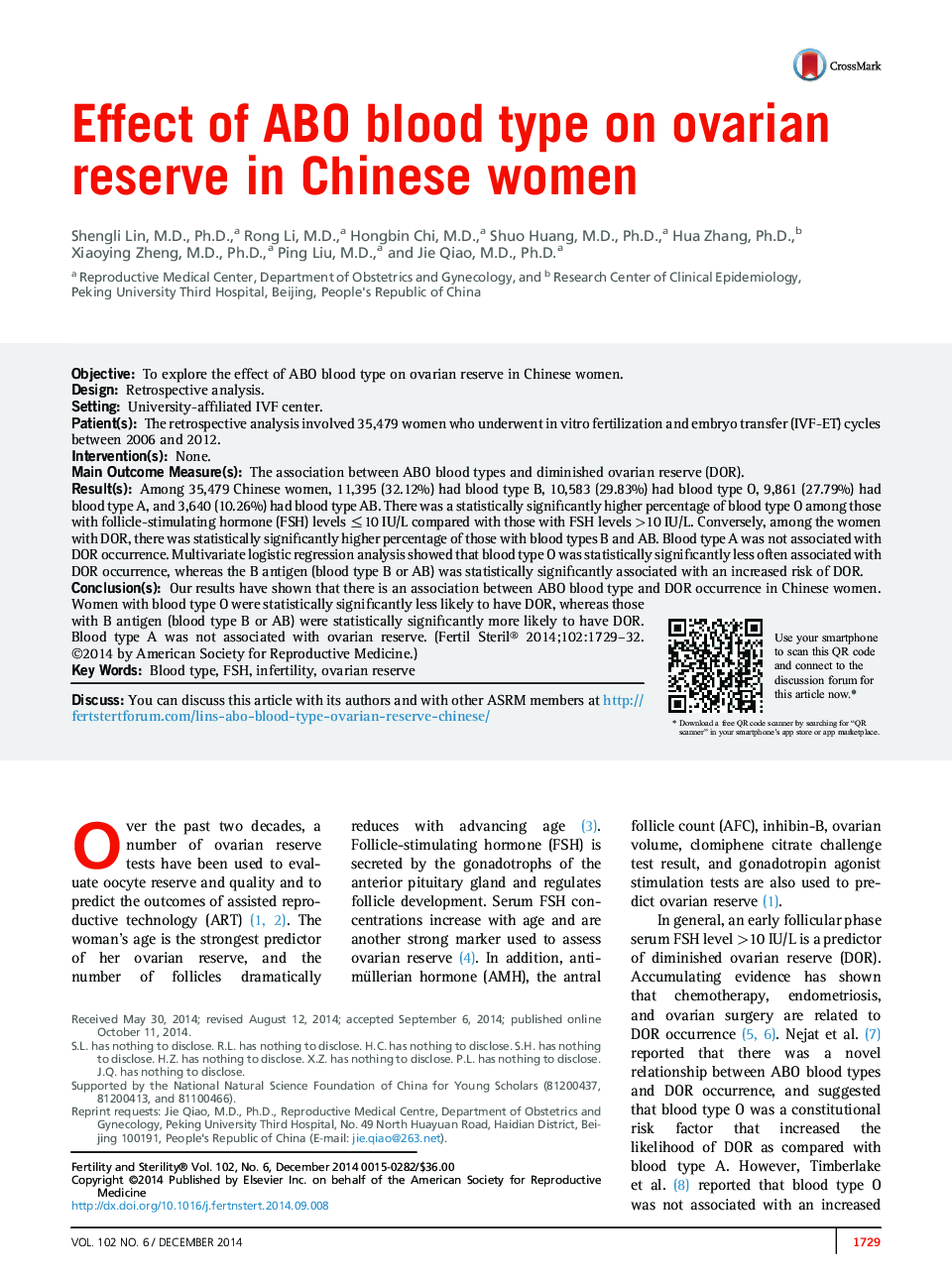| Article ID | Journal | Published Year | Pages | File Type |
|---|---|---|---|---|
| 6181979 | Fertility and Sterility | 2014 | 6 Pages |
ObjectiveTo explore the effect of ABO blood type on ovarian reserve in Chinese women.DesignRetrospective analysis.SettingUniversity-affiliated IVF center.Patient(s)The retrospective analysis involved 35,479 women who underwent in vitro fertilization and embryo transfer (IVF-ET) cycles between 2006 and 2012.Intervention(s)None.Main Outcome Measure(s)The association between ABO blood types and diminished ovarian reserve (DOR).Result(s)Among 35,479 Chinese women, 11,395 (32.12%) had blood type B, 10,583 (29.83%) had blood type O, 9,861 (27.79%) had blood type A, and 3,640 (10.26%) had blood type AB. There was a statistically significantly higher percentage of blood type O among those with follicle-stimulating hormone (FSH) levels â¤10 IU/L compared with those with FSH levels >10 IU/L. Conversely, among the women with DOR, there was statistically significantly higher percentage of those with blood types B and AB. Blood type A was not associated with DOR occurrence. Multivariate logistic regression analysis showed that blood type O was statistically significantly less often associated with DOR occurrence, whereas the B antigen (blood type B or AB) was statistically significantly associated with an increased risk of DOR.Conclusion(s)Our results have shown that there is an association between ABO blood type and DOR occurrence in Chinese women. Women with blood type O were statistically significantly less likely to have DOR, whereas those with B antigen (blood type B or AB) were statistically significantly more likely to have DOR. Blood type A was not associated with ovarian reserve.
